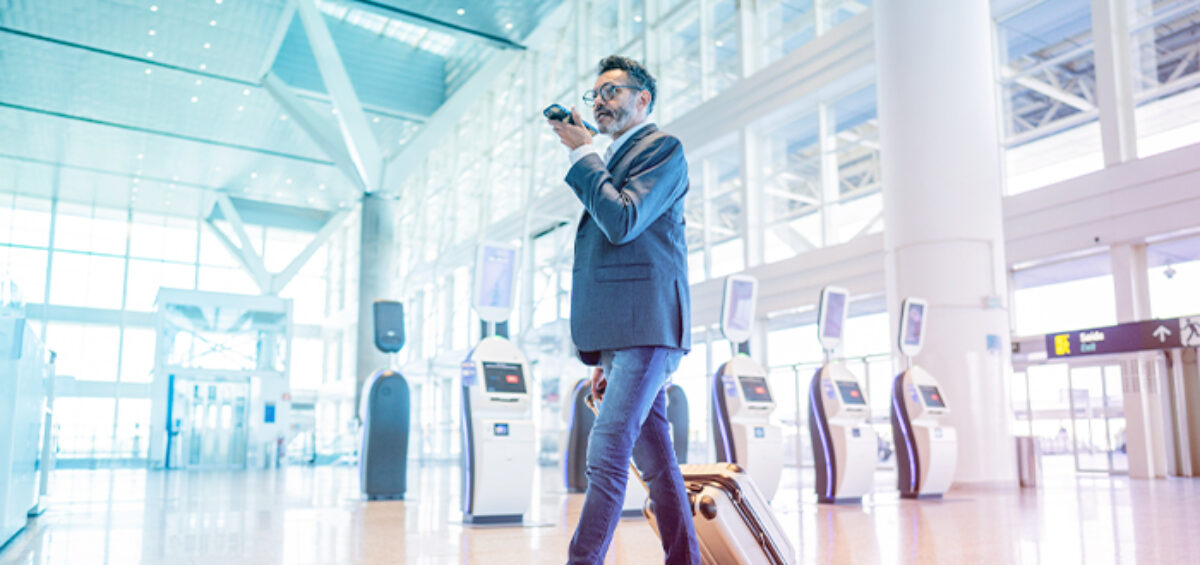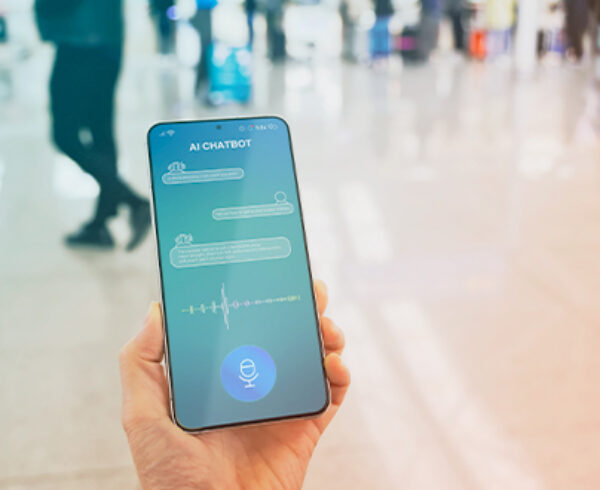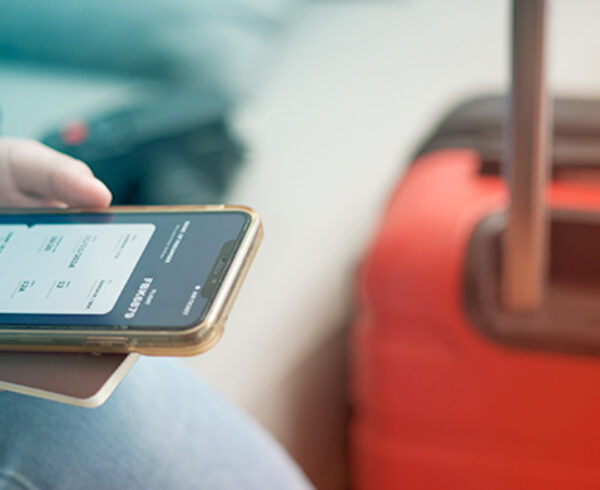As a Travel Arranger, there are likely many tedious tasks you need to complete as part of your role. Could AI tools help take over some of the minutiae of your workday?
The jury’s still out on whether or not AI will (or even should) take over creative tasks like writing the next great novel or cobbling together a script for the next installment of your favorite film franchise. Most, though, can agree that AI has come in pretty handy for completing tasks that are less than enjoyable and typically pretty time-consuming — including when it comes to managing travel, if you’re not currently working with a Travel Management Company.
Still a little wary about AI’s role in your role? Consider how you’ve likely already been using AI to some degree in your daily life, whether for work or for business. Google’s Alexa? AI. Siri? AI. The recent surge of interest, starting with broader access to tools like ChatGPT, is just the natural evolution of technology.
(Think that you can get around using AI for your travel booking processes specifically? Consider that many travel brands are already jumping onto the AI bandwagon and incorporating them into their processes across the board, as has been the case with Expedia and Airbnb, for example.)
So, how can AI tools make travel management and arranging easier and more streamlined? Allowing you to focus on the more crucial parts of your job? Freeing up space in your schedule that was typically taken over by routine chores?
Here are 7 ways AI tools can positively impact your performance, from booking travel to helping Travelers adjust their plans while on the road.

1. Researching
How many hours of a day or week do you spend researching potential options for your Travelers? Travel management using AI tools means less time spent researching the perfect options for your Travelers’ travel needs. With greater capabilities than your typical search engine, AI tools can answer more in-depth questions. They can provide you with more in-depth answers that help you then provide Travelers with exactly the information necessary for a successful trip.
2. Building Itineraries
One place where a lot of that research goes? Itineraries. You might need to know where to send your Travelers for a business dinner to host clients, for example. Or, you might need to know the best way for them to get from the airport to their hotel. Is it best to take the train, an Uber or a rental car?
However, using an AI tool to build your itineraries can take all the research off your plate. Then, the tool can use that research, along with your Travelers’ travel information (such as flight details and hotel reservations) to build an itinerary that covers every aspect of their journey.
3. Monitoring Impact and Sustainability
Maybe your team has started carbon accounting. Or, maybe your travel sustainability goals are a little fluid at the moment.
Whatever the case, if you want to start paying greater attention to your Travelers’ impact and adjust trip sustainability accordingly, AI tools can help. They can suggest more environmentally friendly transportation options, for example. Or, they can project your team’s overall sustainability and impact over time, so you can see where you should make adjustments now.
4. Finding Personalized Recommendations
Many AI tools are on the newer side. Many are still under development and rolling out new features in real-time. However, it’s clear that many, especially those harnessed by travel brands, want to achieve one primary goal. They want to provide you, or the Traveler, with personalized recommendations.
This means that, if you’re searching for the best hotel for a Traveler to stay at that will position them near an event location, you’re not just going to get a list of recommendations that are simply all the hotels in the near vicinity. With AI-empowered personalized recommendations, you can get hotel recommendations based on factors like past stays, past spending, budget, personal hotel preferences, and similar information.
5. Expense Tracking and Reporting
Expense tracking and reporting aren’t exactly fun (at least not for most). As a Travel Arranger, you might find yourself constantly following up with Travelers to get their expense reports. Then, you have to follow up again to verify their accuracy or request documentation.
However, the right AI tools can automate the entire process. They can eliminate the need for Travelers to input their costs into a spreadsheet manually, or to hold onto tons of tiny paper receipts throughout the entirety of a trip (many of which are often lost throughout the travel process anyway).

6. Real-Time Translating
If your Travelers are conducting business travel on an international level, frequently, they’re bound to run into a language barrier at some point, even if they are fluent in a handful of languages. AI tools can remedy this issue with real-time translating, whether your Travelers are trying to hold a conversation with someone at a conference or just need a little help reading the menu at a restaurant.
7. Changing Plans
Travel is unpredictable by nature. While you might have the perfect itinerary for your Travelers all ready to go, once you send them out on the road, they could encounter myriad factors that could essentially make that well-thought-out itinerary meaningless. Flight delayed until the next day? The whole thing needs to be shifted.
When you use AI tools in your travel management, though, changing plans at the last minute or while Travelers are already on the road is easier. Travelers can ask AI tools to rebook them or change reservations. The same AI tools you might’ve used to fashion that original itinerary can also seamlessly create a new, updated version as soon as things change.
Need Help Integrating AI Into Your Travel Management?
JTB Business Travel helps our clients stay on the cutting edge of new travel technology. Let’s talk about how we can help you bring your travel arranging systems and processes into the modern age — resulting in an overall better experience for your Travelers and a more streamlined and efficient experience for you













